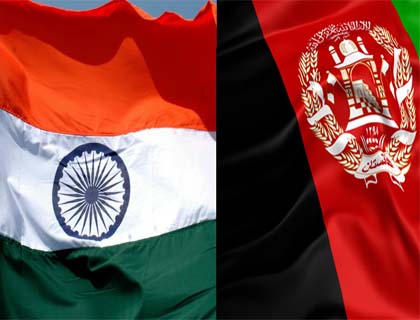Afghanistan needs the assistance of the international community. Among them, India has been a prominent country. In recent years, India has been at the forefront of assisting Afghanistan to succeed in its rebirth and long-awaited renewal. The modern relations between the two countries have a historical dimension, going far back to the birth of Afghanistan as a nation-state in early 18th century.
In those earlier times, Afghanistan's close geographical proximity to India allowed for wide-ranging historical exchanges in matters of trade, culture and politics to take place between the two neighbors. For thousands of years, India and Indian civilization has been a land of opportunities and new beginnings for diverse people and races that migrated to India and gradually created its remarkable diversity.
Throughout history, benevolence and generosity of the land that we call India has been large and expansive enough to accommodate diverse races and people who settled in its swathes and plains throughout ages. Aryans migrated to the region that we call India today from the north and over time mixed with aboriginal Dravidians. Let us not go too far; large numbers of our own Pathans or Pashtuns, like many other races, settled in this land and in varying ways found their own "Indian Dreams". This characteristic benevolence has in a variety of ways extended to modern times.
Even today, Indian neighbors such as Bangladesh, Sri Lanka, Maldives, Mauritius and Bhutan and even Afghanistan, as an extended neighbor, continue to benefit from benign and by no means hegemonic Indian aid and assistance. India, after independence from British rule, actively took part in helping these countries, barring Afghanistan, to implement developmental programs and this support continues to this day.
In post-Taliban era, Afghanistan, as an extended neighbor of India, has been the largest recipient of Indian aid and developmental assistance. Relations between Afghanistan and India remain friendly and strong. India has been at the forefront of assisting the young Afghan State overcome the myriad challenges it has been facing.
India's benevolence to Afghanistan has been on full display with $2 billion in humanitarian aid that India has so far provided to Afghanistan. This is in spite of India having its own gargantuan developmental challenges with a large section of its population still being abysmally poor; yet the internal difficulties and problems has not deterred India from assisting the government and people of our country.
Large-scale infrastructure projects have been launched and many completed in southern areas of the country with Indian funds and Indian expertise. Highways connecting Kandahar and other southern areas with important border cities of Iran have been constructed by India's Border Roads Organization, a construction wing of Indian army.
The highways contribute greatly to promotion of trade and business and people mobility in southern areas of the country by connecting these areas with Iranian cities and afterwards, with the Iranian port of Chah Bahar. India's support and collaboration extends to rebuilding of air links, power plants and investing in health and education sectors as well as helping to train Afghan civil servants and diplomats.
India has provided thousands of short-term and long-term higher education scholarships to Afghan students. This is a major contribution towards building the non-existent human resource base of Afghanistan and making use of the large pool of talent available in the country.
On the political level, India and Afghanistan have pursued a strategic partnership that rests on the mutual gains and benefits that the two countries attain from working together. In addition to the characteristic Indian benevolence and largesse towards its neighbors throughout history as discussed, there are powerful other incentives that have made Afghanistan the subject of acute Indian attention and involvement.
From geo-political and geo-economic points of view and in the context of India-Pakistan rivalries and hostilities, Afghanistan continues to be immensely important to India. As evident during this writer's talks and interactions with many Indian analysts and high-ranking military personnel, India cannot accept to see a failed state in Afghanistan and watch as it slides back into renewed conflict and disarray.
It knows that given the affinity between Afghanistan and Pakistan, a failed state in Afghanistan and prevalence of a state of anarchy and chaos would again make Afghanistan a breeding ground for terrorism. This in turn would strengthen the hands of Pakistan and complicate India's problems in Kashmir and in dealing with Pakistan.
Moreover, a failed Afghan state and the consequent spread of terrorism in Afghanistan can potentially destabilize other countries and governments in the region including Pakistan. A destabilized Pakistan, already in throes of major crises, is certainly not in the long-term interest of India.
In addition, an empowered and peaceful Afghanistan would provide India with direct access to the all-important Central Asian region. For a growing economy such as India, which is increasingly energy-thirsty, access to the vast energy markets of Central Asia is a dream come true.
India's quest for exploring the energy markets of Central Asia through Afghanistan sits next to vast opportunities for expanded trade and business that this region holds for the fast-growing economy of India. In India's calculations, Afghanistan is the strategic bridgehead toward these ends. There can be no doubt that it is imperative for Afghanistan to strengthen and capitalize on its strategic partnership with India as this partnership promises to greatly benefit Afghanistan. Afghanistan suffered for many decades on account of its unbalanced foreign policy. It is not time to repeat the past mistakes.

